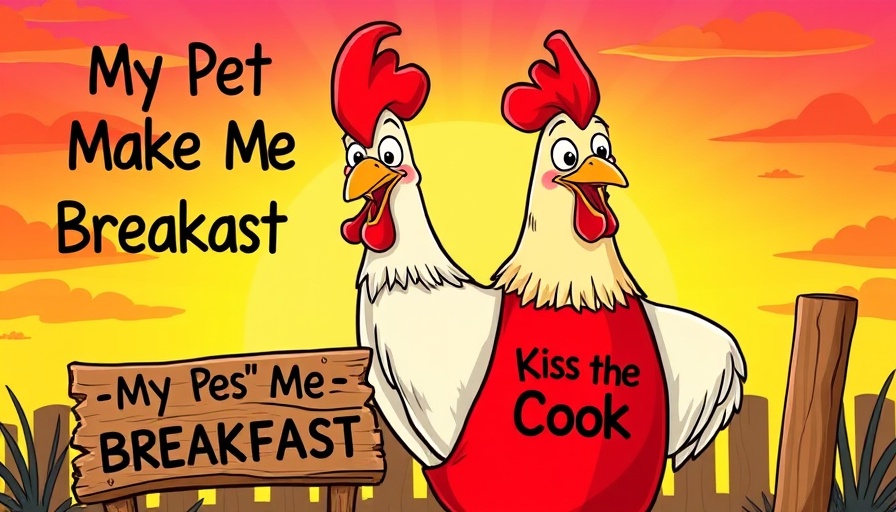
Embarking on the Journey of Hatching Chicken Eggs
Hatching chicken eggs not only connects enthusiasts with the beautiful cycle of life but also provides them with valuable lessons in sustainability and animal husbandry. While the prospect of hatching your own chicks can be thrilling, understanding the essential requirements for successful incubation is vital.
Key Supplies for Success
The first step in the hatching process is gathering the necessary supplies. You'll need a reliable incubator that can maintain the appropriate temperature and humidity levels. Features to consider include automated turning mechanisms and humidity controls, which help replicate the nurturing environment a hen would provide. Research from industry experts emphasizes that a well-equipped incubator is critical to achieving high hatch rates.
The Importance of Temperature and Humidity
Temperature control is paramount during incubation. The ideal temperature for a forced-air incubator is around 99.5°F, while a still-air incubator should maintain about 102°F. A mere one-degree fluctuation can negatively impact the development of the embryo, leading to poor hatching outcomes. Similarly, maintaining consistent humidity levels is crucial, particularly during the last days before hatching. Increasing humidity to 65-70% in the final days ensures that chicks can emerge without the risk of being shrink-wrapped inside their eggs.
Understanding Candling and Monitoring Progress
Candling eggs at stages during incubation allows you to monitor their development closely. Using a bright light, you can assess the growth of embryos; look for clear signs such as blood vessels and movement. Regular candling helps you identify eggs that aren't developing, allowing you to take necessary action before they potentially spoil and affect other healthy eggs in your incubator.
Final Thoughts
With the right preparations and a firm understanding of the incubation process, the journey toward hatching baby chicks becomes an enriching experience. Not only does it provide insight into avian biology, but it also gives one a sense of accomplishment as you nurture life from egg to chick.
 Add Row
Add Row  Add
Add 




Write A Comment